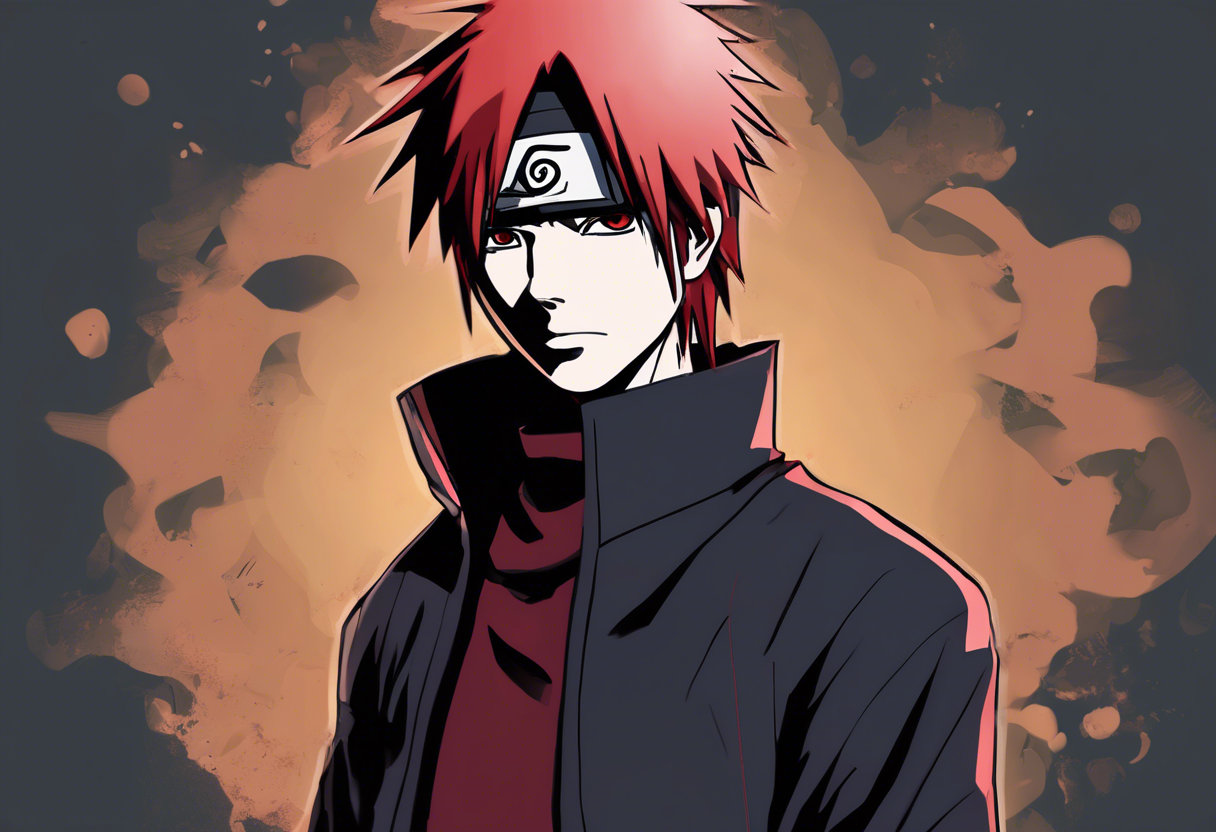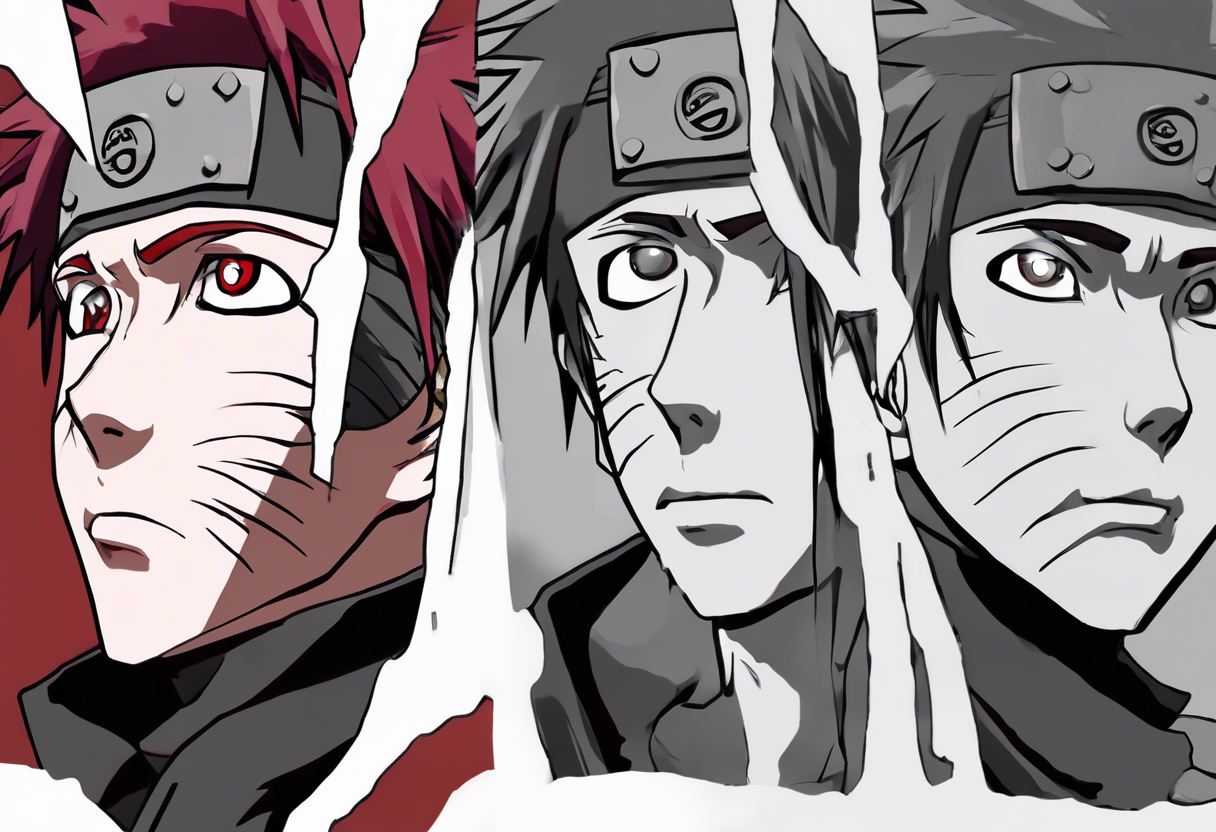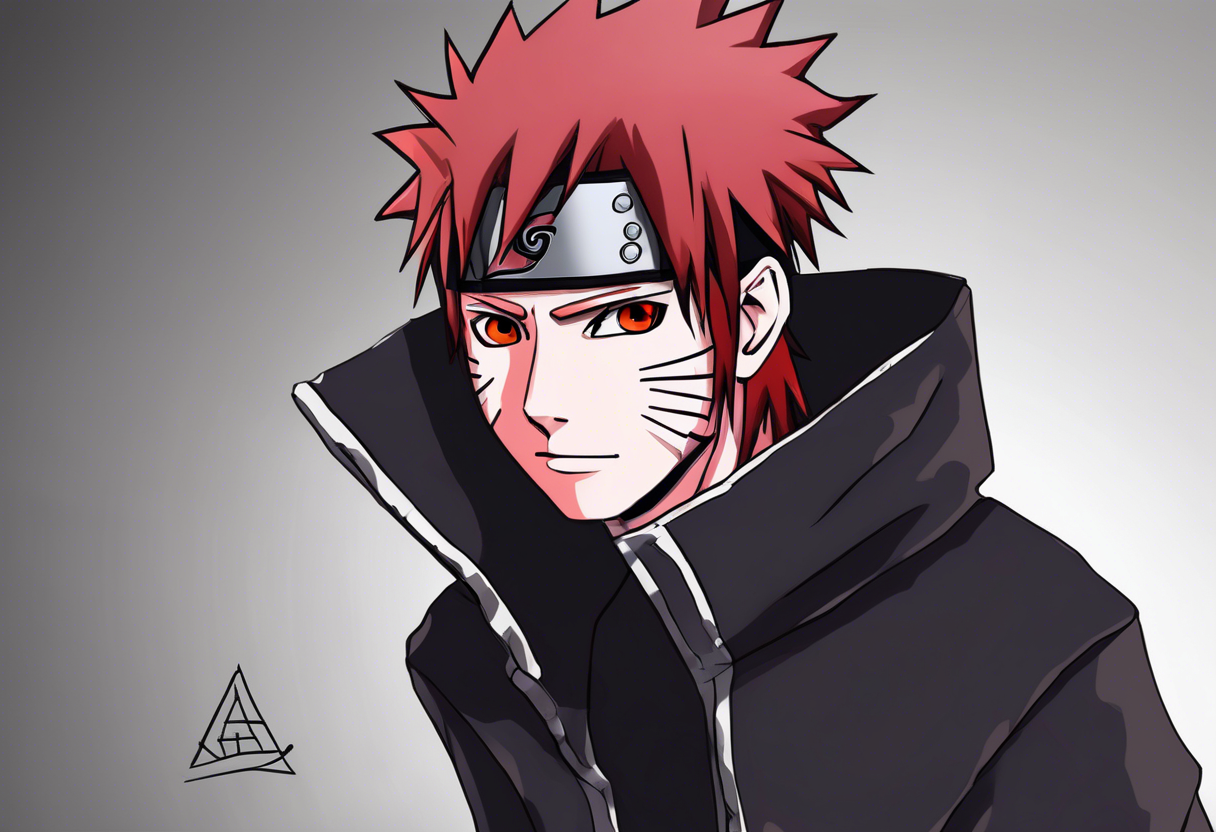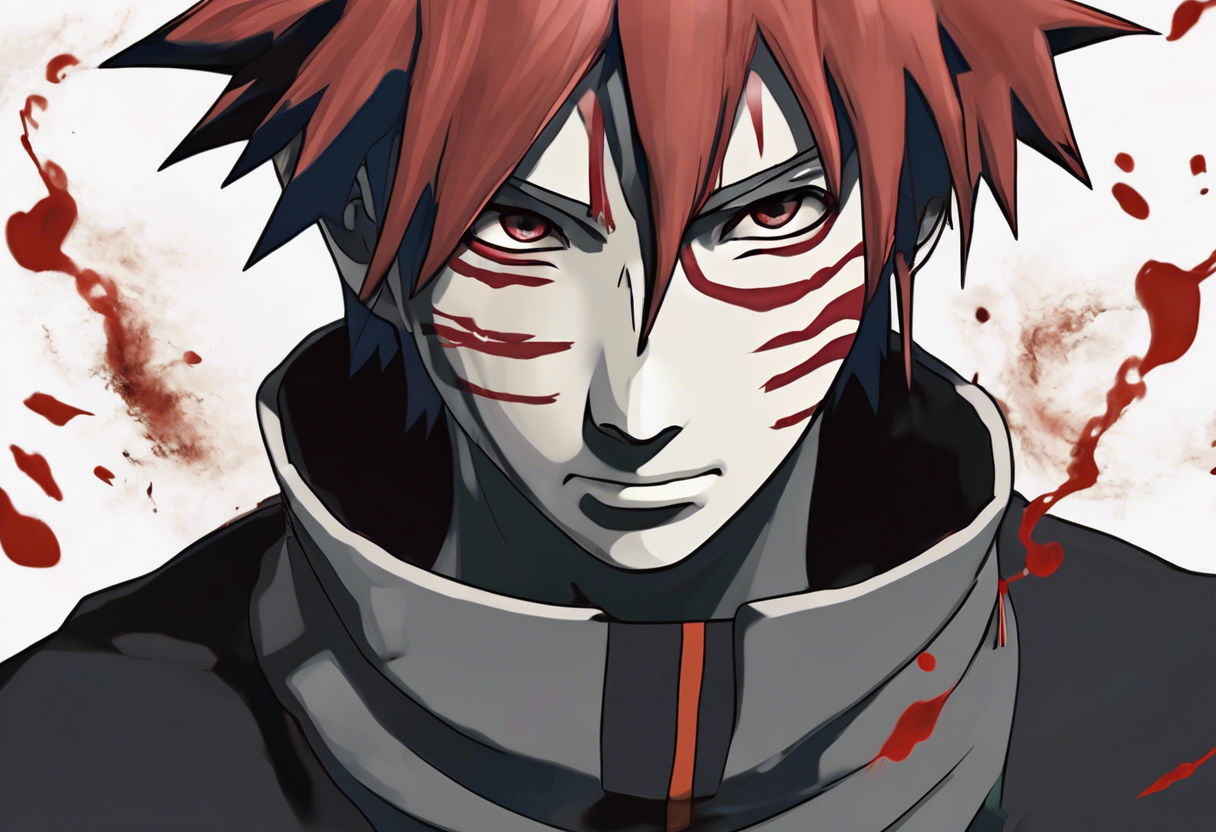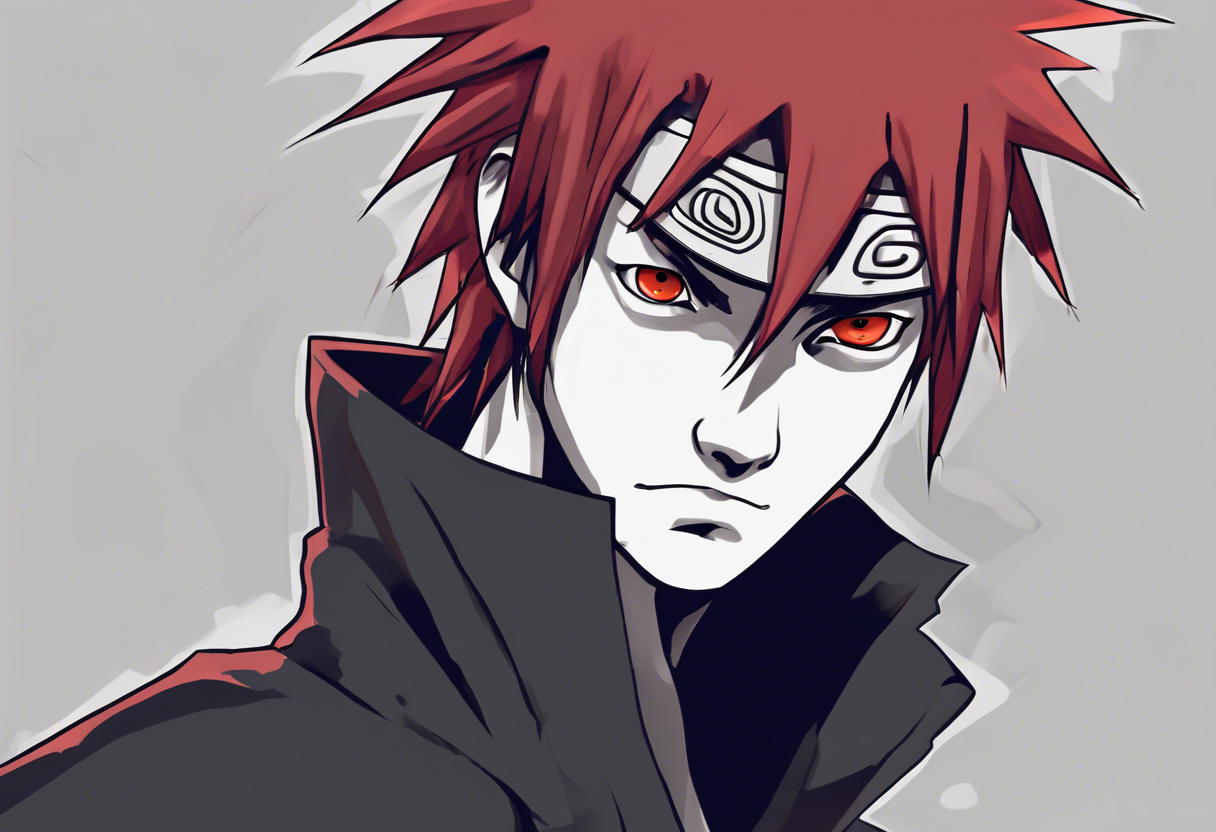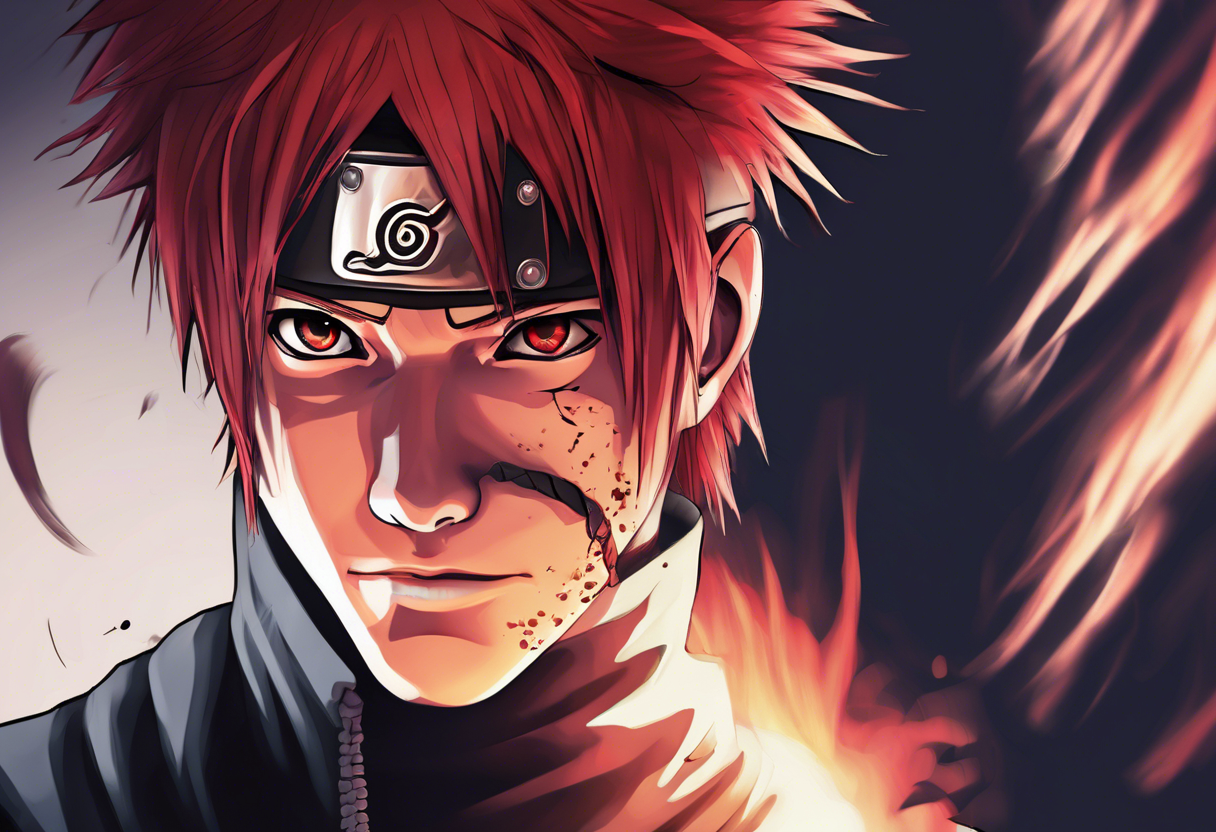Contents
Introduction
Sasori, also known as Sasori of the Red Sand, is a pivotal and complex character in the popular anime series Naruto. Created by Masashi Kishimoto, Sasori is a skilled puppeteer and a former member of the Hidden Sand Village, who later becomes a member of the Akatsuki organization, a group of highly skilled S-rank criminals[3][5].
Born into the Sand village of Sunagakure, Sasori’s life was marked by tragedy from an early age. His parents were killed in a war, leaving him in the care of his grandmother, Chiyo, a renowned puppeteer and kunoichi. This loss had a profound impact on Sasori, driving him to find solace and purpose in puppetry. Chiyo, recognizing his talent and potential, began teaching him the art of puppetry, which would become the cornerstone of his life and career[3][4].
Sasori’s defining traits include his exceptional skill as a puppeteer, his ruthless and cruel demeanor, and his relentless pursuit of immortality through his art. He is known for creating incredibly powerful and lethal puppets, earning him the title "Puppet Master" among his peers. His unique fighting style and ability to manipulate his puppet creations make him a formidable opponent in the Naruto universe[1][3].
Role in the Story
Sasori’s storyline in Naruto is deeply intertwined with his background and motivations. After mastering the art of puppetry, Sasori became disillusioned with the limitations of human life and the impermanence of his creations. He sought to transcend these limitations by creating puppets that could mimic human movements and actions, ultimately aiming to achieve immortality[3][4].
Sasori’s journey takes a significant turn when he leaves the Hidden Sand Village and joins the Akatsuki organization. Here, he is paired with Deidara, another skilled member of the Akatsuki, and together they form a formidable team. Their partnership is marked by a complex dynamic, with Sasori often belittling and criticizing Deidara, reflecting his arrogant and goal-oriented personality[2][3].
One of the key events in Sasori’s storyline is his battle against Sakura Haruno and his grandmother, Chiyo. This confrontation reveals the depth of his emotional complexity and his motivations. Despite his cold exterior, Sasori’s interactions with Chiyo show a character who is both vulnerable and ruthless, highlighting the complexities of his personality[3][5].
Sasori’s role in the narrative is pivotal, particularly in the Akatsuki arc. His interactions with characters such as Gaara, Naruto, and Sakura drive significant plot points and contribute to the overall storyline. His legacy in the series serves as a cautionary tale about the dangers of obsession and the pursuit of immortality[3][5].
Character Analysis
Sasori’s personality is multifaceted and complex, driven by a mix of intellectual curiosity, emotional depth, and a relentless pursuit of his goals. According to some analyses, Sasori can be typed as an INTJ (Introverted, Intuitive, Thinking, Judging) in the Myers-Briggs Type Indicator (MBTI), characterized by his strategic thinking, confidence in planning, and a tendency to control his environment[2].
He is highly analytical and logical, often researching and experimenting to gain knowledge and solve problems. Sasori’s cautious nature and ability to think ahead are evident in his elaborate strategies and the multiple layers of his plans. He prefers to stay focused on the mission at hand and hates any delays or distractions, which aligns with the INTJ type’s preference for efficiency and goal-oriented behavior[2].
Sasori’s Enneagram Type is also debated, with some suggesting he is an Enneagram Type 8w9 (The Challenger) or even an Enneagram Type 5 (The Investigator). The Type 8w9 aligns with his assertive and sometimes ruthless nature, while the Type 5 reflects his analytical and detached personality[1][2].
His motivations are deeply rooted in his past and his desire for recognition and acceptance. Sasori is driven by a need to prove himself as the greatest puppeteer of all time, a goal that stems from his childhood loneliness and the loss of his parents. This obsession with puppetry and immortality is both his strength and his flaw, as it leads him to make sacrifices and betray others to achieve his objectives[3][4].
Themes and Symbolism
Sasori embodies several themes that are central to the Naruto series. One of the most significant themes is the danger of obsession and the pursuit of immortality. Sasori’s relentless drive to create the perfect puppet and achieve immortality through his art serves as a cautionary tale about the consequences of playing with forces beyond human control[3].
Another theme is the exploration of what it means to be human. Sasori’s transformation into a puppet and his creation of human puppets raise questions about the nature of humanity and the boundaries between life and death. This theme is particularly evident in his relationship with Chiyo, who represents a more traditional and human approach to puppetry[3][4].
Sasori also symbolizes the impact of loneliness and loss on an individual. His backstory, marked by the death of his parents and his subsequent isolation, highlights how these experiences can shape a person’s motivations and actions. This aspect of his character adds depth to the narrative and makes him more relatable to audiences[3][5].
Cultural Impact
Sasori has had a significant cultural impact since his introduction in the Naruto series. He is widely recognized as one of the most intriguing and complex villains in anime, admired for his intelligence, strategic thinking, and unique abilities. Fans appreciate his intricate character design and the philosophical debates his character sparks about art, immortality, and humanity[1][3].
In adaptations and spin-offs, Sasori’s character has been portrayed consistently with his original depiction, maintaining his ruthless yet vulnerable persona. His influence can be seen in other anime and manga series, where characters with similar traits and motivations are often compared to him[3][5].
Critical Reception
Critics and audiences have generally praised Sasori for his complexity and depth. His character is often cited as one of the highlights of the Akatsuki arc in Naruto, with many appreciating the layers of his personality and the philosophical themes he represents[2][3].
However, there are also varying interpretations of his role. Some viewers see him as a symbol of the dangers of ambition and the pursuit of power, while others appreciate his artistic genius and the emotional depth he brings to the story. The debates around his personality type and motivations further underscore the complexity and intrigue of his character[1][2].
Legacy
Sasori’s enduring appeal lies in his multifaceted personality and the significant impact he has on the Naruto narrative. He remains a compelling character in contemporary discussions about anime and manga, often cited as an example of a well-crafted villain.
His legacy extends beyond the Naruto series, influencing character archetypes in other works of fiction. The themes he embodies, such as the pursuit of immortality and the exploration of humanity, continue to resonate with audiences and inspire new stories and characters.
In conclusion, Sasori is a character whose significance in the Naruto series is undeniable. His complex personality, unique abilities, and the themes he represents make him a memorable and impactful figure in the world of anime.
References
- https://boo.world/database/profile/20475/sasori-personality-type
- https://practicaltyping.com/2019/06/04/naruto-series-sasori-intj/
- https://blackatlantic.uga.edu/12-naruto-shippuden-sasori-secrets-revealed
- https://www.fanverse.org/threads/sasori-analysis.711769/
- https://www.giantbomb.com/sasori/3005-3576/

